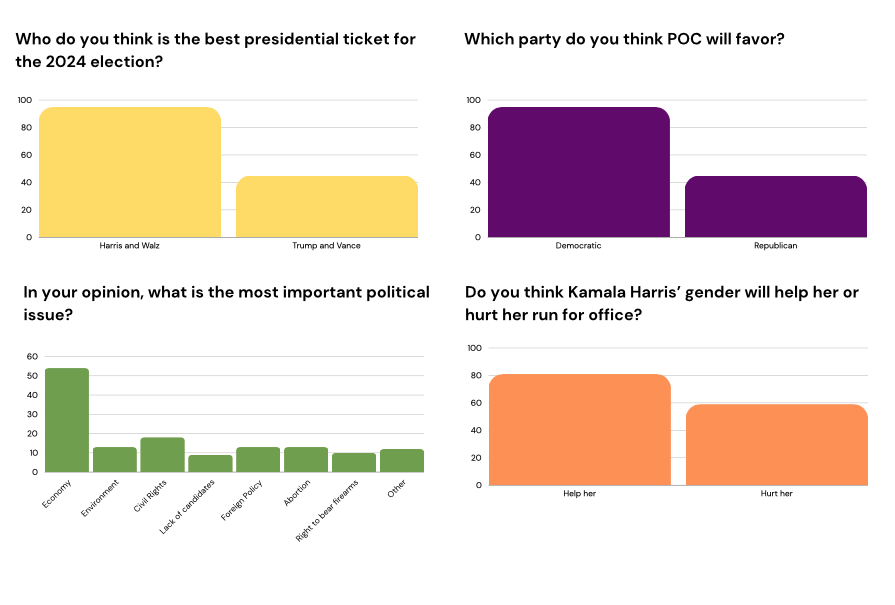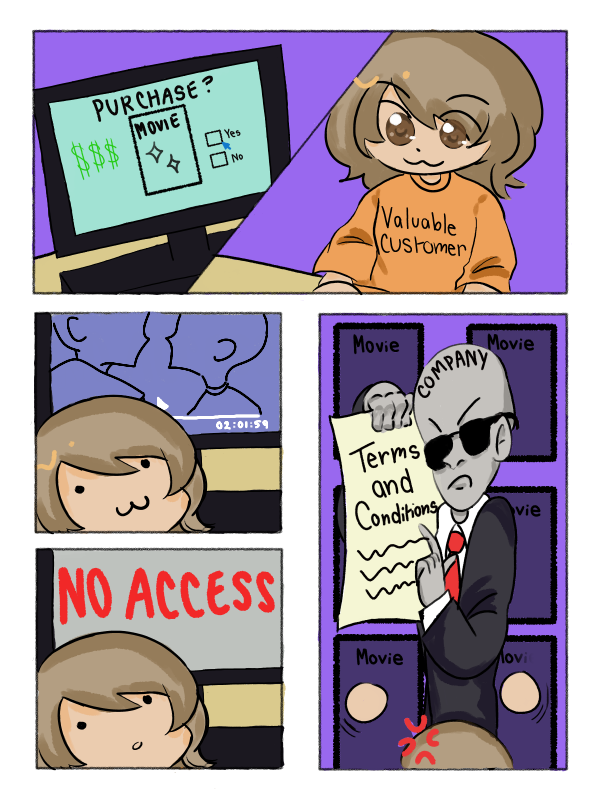Agree to the terms to continue. Accept cookies for a better experience. What do they mean and what happens when you click the accept buttons?
Websites require you to accept terms of service and privacy policies before giving access, putting the accept buttons in bright, inviting colors.
These websites know they have the upper hand, since you’re already on the website signing up.
“I try to skim through them, but it feels like at the end of the day I still need the website, so I end up accepting it,” said Mt Eden teacher Aliyah Alcantara.
When asked why companies write lengthy and difficult to read terms, Mt. Eden teacher Dan Mai said he thought it was “so they can get you.”
In the privacy policies, companies explain what data they collect and how they use it. Many users are aware that their data is being sold, but don’t know of the vast amount of data being collected.
According to a 2023 Pew Research study, 72% of American adults aged 18-29 accept these policies often without reading them, older adults being more likely to read before accepting.
Your data is then used to track you across websites and even devices to show you advertisements. Meta’s (formerly Facebook) privacy policy states they use activity on and off of Meta’s products using cookies provided by external platforms to provide users with ads.
When looking at the length of the terms and privacy policies of popular websites and apps among highschoolers, the average length of the terms were 7645 words, 4914 for privacy policies. On average one would have to read over 12,000 words every time they wanted to sign up for a website.
The average American reads at about 250 words per minute; this means that it would take 50 minutes to read through both the terms of service and privacy policy of a website.
“I think they do it on purpose ‘cause they know people are going to skip over it,” said Mt. Eden senior Jayden Lac.
While already lengthy to read for the average American, Alcantara showed concern for non-english speakers and those with reading disabilities.
“There should be a people-friendly version to look
through,” said Alcantara. “Something with language that’s more accessible because it’s just not fair.”
Online media companies put clauses in their terms of service, allowing them to take away content such as movies, shows, and video games from users’ libraries after it is purchased. In December 2023, PlayStation announced they would remove a large portion of purchased content from users due to a licensing problem with associating companies; not clearly conveying the content was licensed (rented) to the buyer at the time of purchase. Although later that month walking back on their decision, many felt that trust in the company was lost.
“They always want to find a way to continue to have monetary gain,” said Mai.
These clauses are hidden deep in their terms often where the reader never sees them, sometimes omitted all together.
“Makes me feel lied to, if you’re purchasing something it becomes yours to own, they shouldn’t have the right to take it away,” said Lac.
There are legitimate reasons for companies to take away one’s content; but when these reasons are not clearly conveyed, there’s outroar in their communities.
“That makes me feel really mad, I’m really frustrated and helpless,” said Alcantara.




















